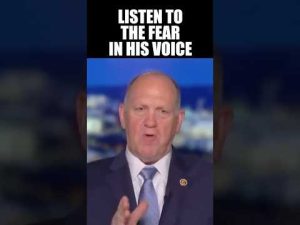In the realm of political discourse, civility and respect are foundational pillars. However, the recent altercation within conservative circles, particularly involving Tucker Carlson and Mark Levin, highlights a troubling trend that undermines these values. The incident stems from Tucker Carlson extending a private invitation to Levin for a debate at a Turning Point event, only to be met with a vehement rebuff laden with incendiary language from Levin. Such exchanges raise concerns about the decorum in conservative discussions and the implications of using hostile rhetoric.
When political figures resort to labeling each other with terms like “Nazi promoter” or comparisons to modern-day extremists like David Duke, it detracts from meaningful engagement on the issues at hand. The use of this charged language is reminiscent of the tactics often employed by the radical left to silence opponents, tactics conservatives have long decried for their potential to incite violence and stifle free speech. When these terms are misapplied in internal debates, especially over complex issues like foreign policy, it creates more division than unity.
This incident between two prominent conservatives is a stark reminder of the dangers of letting ideological disagreements escalate into personal attacks. For years, conservatives have argued against the misuse of terms such as “fascist” or “Nazi,” especially in debates surrounding figures like President Trump. These labels carry significant historical weight, and using them to demean fellow conservatives not only inflames tensions but also undermines legitimate criticism of actual extremist ideologies.
It is critical for conservatives to maintain a clear distinction between robust debate and reckless accusations. Dismissing someone with terms like “Nazi promoter” without sufficient cause risks alienating individuals who are deeply committed to upholding the Constitution and the foundational principles of America. This creates an unhelpful rift within the conservative movement, where unity is vital in the face of opposition to progressive policies.
As the Turning Point event approaches, it presents another chance for attendees to demonstrate the strength of conservative dialogue grounded in common values and shared goals. Rather than dwelling on inflammatory language, the event should be an opportunity to showcase a respectful exchange of ideas. Conservatives must strive to elevate their discourse, ensuring that it remains anchored in respect, civility, and a commitment to the truth that aligns with America’s founding ideals. In doing so, they can better focus on the real challenges facing the nation and protect the country from within and beyond its borders.







